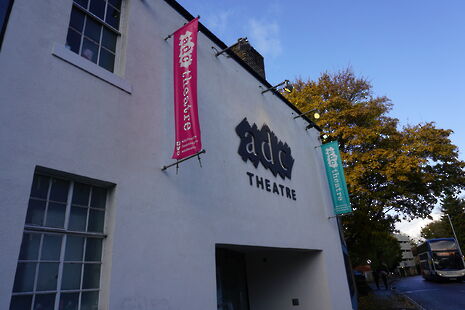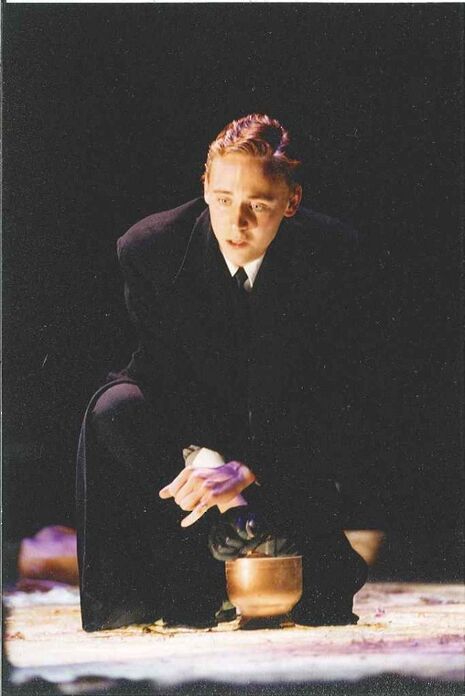Cambridge theatre has a class problem
When only seven per cent of top British Oscar winners have been to comprehensive schools, how can Cambridge theatre expect to be accessible?

All Cambridge students are equal – but some Cambridge students are more equal than others. It is wildly intimidating to discover that even after having wrestled my way into Cambridge against all odds, I fall far short in terms of the non-academic accomplishments that are the fabric of student life here. Anyone can sing for the chapel choir – but you have to have the ability to sight-read sheet music to pass the audition. Anyone can try out for rowing – but you’re never going to get anywhere unless you’ve done it before. Anyone can be involved in theatre – but when you find out that some schools have actual auditoriums, some students have directed plays, and some have been constantly encouraged by role models in the media and closer to home, it’s not hard to believe that there’s no point in trying.
A student’s educational history and social background can have a massive impact on their ability to get involved in theatre in Cambridge, directly and indirectly. The last OFSTED report of my own secondary school concluded that many pupils “do not develop a deep and conceptual understanding”. A cohort of students with almost no exposure to theatre, whether that’s as an actor or an audience member, no public speaking skills (because sensible classroom discussions, let alone debates, are hard to come by) and seemingly no ability for deep and conceptual understanding would hardly strike you as the next Oscar hopefuls.

The arts, like many other industries, are subject to the systematic bias towards the middle class. A Sutton Trust report from earlier this year brought to light some concerning statistics regarding the educational background of Britain’s leading actors. Of all the British winners of top Oscars (Best Actor, Actress and Director), 67 per cent were privately educated, and another 27 per cent at grammar schools – leaving only 7 per cent having attended comprehensives. Our eyes are often drawn to upstanding examples of Cambridge grads done good – recently, our lives have been peppered with the Redmaynes and Hiddlestons that we hope to become. However, this is more unattainable for some than others: being at Cambridge does not eradicate the systematic barriers within the arts that come with being LGBT+, female, a person of colour or working class.
I sat down with Seth Kruger, who has been in more than 30 shows during his time at Cambridge – and strongly identifies as working class. Seth is an example of someone who may appear to conform with the Hiddleston-esque stereotype, but in fact had to overcome a range of practical inadequacies and societal pressures to pursue his interest in acting. He confesses that he never had much opportunity to get involved in theatre in school, but “not because there wasn’t a desire for it”. In many state schools, a lack of resources and a cultural disengagement from theatre means that school plays are few and far between. This is in contrast to others who may have benefited from a wealth of resources and experiences as a result of their social background. Old Etonian Joshua Neicho has talked of the college’s “professional-standard 400-seat theatre with a fly tower – the Farrer – and two studio theatres” which are “capable of mounting 30 productions a year”. The theatre scene in Cambridge is “dominated” by people who have done theatre before, and it is unsurprising that this should correlate with certain social and cultural characteristics.
“The barriers are invisible,” Seth tells me. “Cambridge is good at hiding its prejudices”. Working-class students in Cambridge are able to slip under the radar because of what “people assume” – if you’re able to refine your accent and avoid conversations about classical music, ancient literature, gap years, internships and anything about your school, then no one can tell. Anyone who deviates from Cambridge’s historically established norm is held back by these invisible barriers. The plays that are staged at Cambridge are often those in which “the natural casting would be for ‘white, middle-class’ type actors”, and for those who do not conform to this ideal, “the whole process is ridden with anxiety”. Discrimination is directed more obviously at those “who can fake it less easily” than Seth, who confesses his accent is far removed from his East London origins. One Cambridge actor told me that “the theatre scene and Cambridge as a whole needs to rid itself of the idea that it’s just for a certain demographic, and people of colour need to be convinced of this so we can utilise the platforms available and build a stronger community, and slowly remove the anxiety of the process”.
This is no bitter claim that privileged actors don’t deserve their roles, but merely a call for acknowledgement that Cambridge theatre, like the arts generally and countless other industries, is not entirely meritocratic. This may sound obvious, but the lack of awareness of the subtleties of systematic discrimination in Cambridge is “shocking and disgusting”. How many people could have performed like Eddie Redmayne if their school had a stage for them to act on? How many people would have embraced the world of theatre if they had seen people like them on stage? How many more comprehensive school students would there be in Cambridge if they were not subject to a culture that tells them that there’s no point in trying?
 News / Reform candidate retracts claim of being Cambridge alum 26 January 2026
News / Reform candidate retracts claim of being Cambridge alum 26 January 2026 Interviews / Lord Leggatt on becoming a Supreme Court Justice21 January 2026
Interviews / Lord Leggatt on becoming a Supreme Court Justice21 January 2026 News / Report suggests Cambridge the hardest place to get a first in the country23 January 2026
News / Report suggests Cambridge the hardest place to get a first in the country23 January 2026 Comment / How Cambridge Made Me Lose My Faith26 January 2026
Comment / How Cambridge Made Me Lose My Faith26 January 2026 Features / Are you more yourself at Cambridge or away from it? 27 January 2026
Features / Are you more yourself at Cambridge or away from it? 27 January 2026








